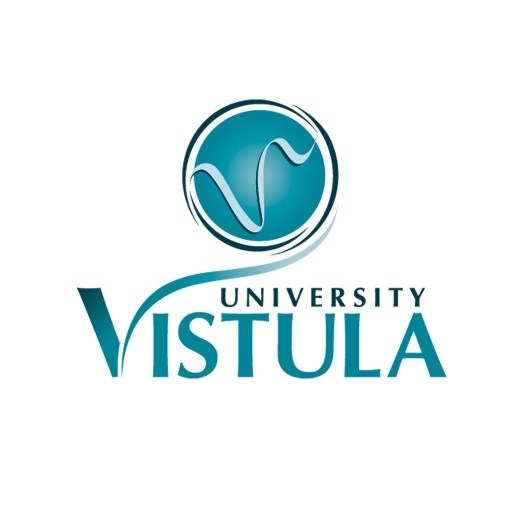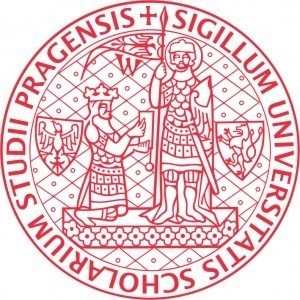Photos of university / #_londonu
The Master of Laws (LLM) in International Economic Law offered by the University of London provides an in-depth exploration of the legal frameworks that underpin the global economic system. This comprehensive programme is designed for legal professionals, economists, policymakers, and scholars who wish to deepen their understanding of the complex legal issues surrounding international trade, investment, development, and economic cooperation. The curriculum encompasses a wide range of topics, including international trade law, investment law, development law, and the regulation of transnational commerce. Students will examine the legal mechanisms that facilitate international economic transactions, resolve disputes, and promote sustainable economic growth across borders.
Through a combination of rigorous coursework, case studies, and research projects, participants will develop critical analytical skills and a nuanced understanding of the policies and legal principles that govern international economic relations. The programme emphasizes the interconnectedness of law, economics, and policy, preparing students for careers in international organizations, government agencies, law firms, and academia. The flexible distance-learning format allows students to study at their own pace while balancing professional and personal commitments, making this a suitable choice for working professionals worldwide.
The University of London's renowned legal faculty ensures that students receive high-quality education rooted in current legal practices and global economic challenges. Graduates of the programme will be equipped to analyze complex legal issues, advise on international economic policies, and contribute effectively to the development of international economic law. With access to a vibrant academic community and extensive resources, students can engage in meaningful discussion and research, fostering a deeper understanding of the legal intricacies shaping the world economy. This LLM programme offers a distinctive opportunity to specialize in one of the most dynamic and influential areas of law, preparing students for impactful careers and leadership roles in the international economic arena.
The MSc in International Economic Law offered by the University of London provides students with a comprehensive understanding of the legal frameworks that underpin the global economy. This programme is designed for individuals interested in exploring the complex interactions between international trade, finance, investment, and law. Students will examine key topics such as the regulation of international commercial transactions, dispute resolution mechanisms, trade policies, and the role of international institutions like the World Trade Organization and the International Monetary Fund. The curriculum also covers the legal aspects of economic sanctions, intellectual property rights, and cross-border investment challenges.
Throughout the course, students develop critical analytical skills to assess legal issues arising from the interconnectedness of national and international economic policies. They will engage with case law, treaties, and policy documents to understand how legal principles are applied in real-world scenarios. The programme emphasizes both theoretical knowledge and practical application, preparing graduates for careers in international law firms, governmental agencies, international organizations, and multinational corporations.
The programme is delivered through a combination of online lectures, interactive seminars, and independent research. Students have the flexibility to study at their own pace while maintaining access to expert academics and law practitioners. The MSc aims to build a robust foundation in the legal structures that facilitate global commerce, ensuring graduates are well-equipped to navigate and shape the evolving landscape of international economic law. Upon completion, students will possess a thorough understanding of international legal principles and their application to economic issues, enabling them to contribute effectively to policy development, legal advisory roles, or further academic research.
The MSc in International Economic Law at the University of London requires students to complete a total of 180 credits through a combination of taught modules and a dissertation. The programme is designed for students who wish to develop a comprehensive understanding of the legal aspects of international economic relations, including trade law, investment law, dispute resolution, and the regulation of financial markets. Students are expected to undertake core modules that provide foundational knowledge in international economic law, alongside optional modules tailored to their specific interests and career objectives. All students must also submit a dissertation of approximately 15,000 words, which involves independent research under academic supervision. The program aims to equip graduates with the analytical, legal, and practical skills necessary to operate effectively in international economic environments. Admission requirements typically include a relevant bachelor's degree or equivalent qualification, demonstrating strong academic performance. Applicants may also need to demonstrate proficiency in English language through standardized tests such as IELTS or TOEFL if applicable. The programme is delivered through distance learning, allowing flexibility for students balancing studies with professional or personal commitments. Tuition fees vary by year and residency status, and students are encouraged to consult the official university website for up-to-date information. Overall, the programme's rigorous curriculum, combined with research opportunities, prepares graduates for careers in international law firms, governmental agencies, international organizations, or private sector companies involved in international trade and finance.
The University of London offers the International Economic Law program with a variety of financing options to support students throughout their studies. Tuition fees for the program vary depending on the choice of mode and the student’s nationality, with detailed information available on the university's official website. International students generally pay higher fees compared to domestic students, and the university provides a breakdown of the costs for each academic year. To assist in budgeting, students are encouraged to consider additional expenses such as textbooks, study materials, and living costs, which can differ significantly based on the student's country of residence.
Funding opportunities for students enrolled in the International Economic Law program include scholarships, bursaries, and sponsorships offered directly by the University of London. The university's scholarship programs aim to support high-achieving students and those facing financial hardship. Some scholarships are awarded based on academic merit, while others consider financial need, country of residence, or specific fields of interest within international economic law. Prospective students are advised to carefully review the eligibility criteria and application deadlines for each scholarship and to prepare necessary documentation in advance.
In addition to university-specific funding, students may explore external funding options, such as government grants, loans, and private scholarships available in their home countries or internationally. Many governments and organizations offer financial aid for students pursuing postgraduate studies overseas, which can significantly offset the costs associated with the program. Students are encouraged to contact their local education authorities or scholarship agencies for more detailed information.
The university also provides guidance on student loans and payment plans, allowing students to spread their tuition payments over manageable installments. Some students may consider part-time work opportunities, either on or off-campus, to supplement their income during the course of their studies. The university's location in London provides access to a range of employment options, subject to visa regulations for international students.
Furthermore, the University of London has a dedicated financial aid office that offers personalized advice and assistance to students seeking funding sources. It is vital for applicants to start exploring financing options early in the application process to ensure they meet all deadlines and requirements. Overall, the university's comprehensive approach to financing aims to make the International Economic Law program accessible to qualified students worldwide, regardless of their financial background, through a combination of internal and external funding mechanisms.
The LLM in International Economic Law offered by the University of London is a comprehensive postgraduate programme designed to provide students with an in-depth understanding of the legal aspects governing international economic relations. This programme covers a wide range of topics, including international trade law, investment law, dispute resolution, regulation of international economic activities, and the role of international economic organizations such as the World Trade Organization (WTO), International Monetary Fund (IMF), and the World Bank. It aims to equip students with both the theoretical knowledge and practical skills necessary to analyze and interpret the legal frameworks that underpin global economic activities and to engage effectively with the complex issues faced by international economic actors.
The programme is delivered through a combination of blended learning, integrating online coursework with optional face-to-face seminars, which allows for flexibility suited to working professionals and students from diverse geographical backgrounds. The curriculum is designed by leading academics and practitioners in the field, ensuring that students receive current and relevant legal insights. Courses are typically modular, allowing students to select areas of specialization according to their interests and career goals, including topics like trade negotiations, economic sanctions, corporate regulation, and sustainable development within the context of international economic law.
Students are encouraged to develop critical thinking abilities, analytical skills, and an appreciation of the interdisciplinary nature of international economic law, which intersects with politics, economics, and international relations. The programme emphasizes practical legal problem-solving, encouraging students to engage with case law, treaties, and policy analysis. Graduates of the programme often pursue careers in legal practice, government, international organizations, academia, or consultancy firms specializing in international commercial and economic law.
The University of London’s reputation for academic excellence, combined with the flexibility of online learning, makes this programme accessible to a global student body. Upon completion, students receive an LL.M. degree recognized internationally, which can enhance career prospects in the competitive field of international economic law. The programme’s comprehensive approach ensures graduates are well-prepared to address the legal complexities of international economic relations and to contribute effectively to policy development and legal practice in this dynamic field.










